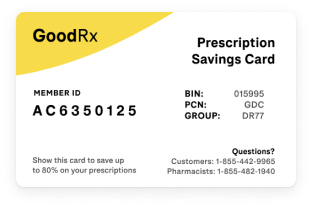What is Ozempic?
Ozempic (semaglutide) is an injectable prescription medication developed by Novo Nordisk. It belongs to a class of drugs called GLP-1 receptor agonists and was initially approved by the FDA in 2017 for the management of type 2 diabetes. In recent years, it has gained significant attention for its effectiveness in weight loss, leading to the development of Wegovy, a higher-dose version of semaglutide specifically approved for weight management.
Key Facts About Ozempic
- Active ingredient: Semaglutide
- Primary FDA-approved use: Type 2 diabetes management
- Secondary use (off-label): Weight loss
- Administration: Weekly subcutaneous injection
- Requires prescription: Yes
How Ozempic Works
Ozempic works by mimicking the hormone GLP-1 (glucagon-like peptide-1), which is naturally produced in the intestines. This hormone has several important effects:
- Blood Sugar Regulation: It stimulates insulin production when blood sugar levels are high and reduces glucagon production (a hormone that raises blood sugar).
- Delayed Gastric Emptying: It slows down how quickly food leaves your stomach, helping you feel full longer.
- Appetite Suppression: It acts on the brain's appetite control centers, reducing hunger signals.
These mechanisms not only help control blood sugar levels but also contribute to reduced caloric intake, making it effective for weight management in many patients.
Benefits for Diabetes Management
As a diabetes medication, Ozempic has demonstrated significant benefits:
- Lowers HbA1c levels (a measure of average blood sugar over 3 months)
- Reduces risk of major cardiovascular events in people with type 2 diabetes and heart disease
- May help protect kidney function
- Convenient once-weekly dosing (compared to daily medications)
- Low risk of hypoglycemia (dangerously low blood sugar) when used alone
Weight Loss Effects
Clinical trials have shown that people taking Ozempic often experience significant weight loss, even though this was initially observed as a "side effect" rather than the primary purpose of the medication. In studies:
- Participants lost an average of 5-10% of their body weight over 30-52 weeks
- Some individuals experienced even more substantial weight loss
- Weight loss typically continues for 6-12 months before plateauing
This effect has led to widespread off-label prescribing for weight management, as well as the development of Wegovy, which contains the same active ingredient at a higher dose specifically for weight loss.
Important Note
Ozempic is not FDA-approved specifically for weight loss. While doctors can legally prescribe it "off-label" for this purpose, insurance may not cover it without a diabetes diagnosis. Wegovy is the FDA-approved version of semaglutide specifically for weight management.
Potential Side Effects
Like all medications, Ozempic can cause side effects. The most common include:
- Gastrointestinal issues: Nausea, vomiting, diarrhea, abdominal pain
- Injection site reactions: Redness, pain, or swelling
- Fatigue or dizziness
More serious but rare side effects may include:
- Pancreatitis (inflammation of the pancreas)
- Diabetic retinopathy complications
- Kidney problems
- Severe allergic reactions
- Thyroid tumors (observed in animal studies but unclear risk in humans)
Cost and Insurance Coverage
Ozempic can be expensive without insurance coverage:
- Average retail price: $800-$1,000 per month without insurance
- Most insurance plans and Medicare Part D cover Ozempic for diabetes treatment
- Coverage for weight loss (off-label use) is typically limited or non-existent
- Manufacturer discount programs may be available for eligible patients
Saving on Prescription Costs
If you're prescribed Ozempic or similar medications, consider using our free prescription discount card to potentially save on your out-of-pocket costs.
Alternatives to Ozempic
Several alternatives exist with similar mechanisms or benefits:
For Diabetes Management:
- Other GLP-1 receptor agonists: Trulicity (dulaglutide), Victoza (liraglutide), Bydureon (exenatide)
- SGLT2 inhibitors: Jardiance, Invokana, Farxiga
- DPP-4 inhibitors: Januvia, Tradjenta
- Traditional options: Metformin, sulfonylureas, insulin
For Weight Management:
- Wegovy: Higher-dose semaglutide specifically approved for weight management
- Saxenda: Injectable liraglutide for weight management
- Qsymia: Combination of phentermine and topiramate
- Contrave: Combination of naltrexone and bupropion
Who Should Consider Ozempic?
Ozempic may be appropriate for:
- Adults with type 2 diabetes who need additional glucose control
- People with type 2 diabetes who have cardiovascular disease
- Individuals who can self-administer injections or have assistance
- People who can afford the medication (through insurance or out-of-pocket)
Who Should Avoid Ozempic?
Ozempic is not suitable for everyone. It should be avoided by:
- People with type 1 diabetes
- Those with a personal or family history of medullary thyroid carcinoma
- Individuals with Multiple Endocrine Neoplasia syndrome type 2 (MEN 2)
- People with a history of severe gastrointestinal disease
- Pregnant women or those planning pregnancy
- Anyone with a previous serious allergic reaction to semaglutide
Conclusion
Ozempic represents a significant advancement in the treatment of type 2 diabetes, with the added benefit of weight loss for many patients. However, it's important to approach it as a serious medication rather than just a weight loss solution. Like all treatments, it should be used under medical supervision as part of a comprehensive health plan that includes dietary changes, exercise, and lifestyle modifications.
If you're considering Ozempic for diabetes management or weight loss, speak with your healthcare provider about whether it's appropriate for you, what results you can realistically expect, and how to manage any potential side effects.
Disclaimer: This article is for informational purposes only and is not a substitute for professional medical advice. Always consult with a qualified healthcare provider before starting any new medication or treatment.

